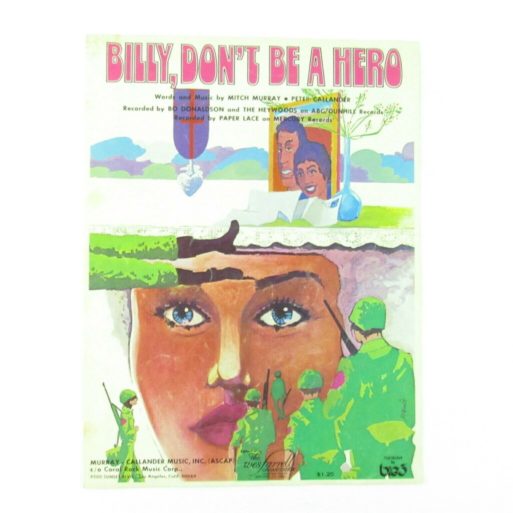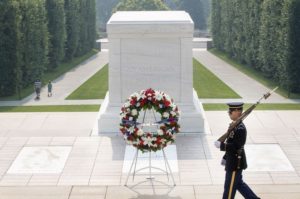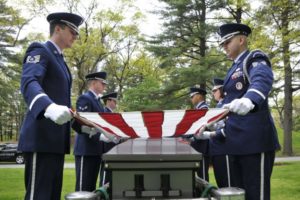 “Billy Don’t Be a Hero,” an anti-war song, premiered in the United Kingdom, where it was performed by the group Paper Lace. In 1974, Bo Donaldson and the Heywoods performed the song in the United States. It shot to the top of the charts for a full two weeks and sold three million records.
“Billy Don’t Be a Hero,” an anti-war song, premiered in the United Kingdom, where it was performed by the group Paper Lace. In 1974, Bo Donaldson and the Heywoods performed the song in the United States. It shot to the top of the charts for a full two weeks and sold three million records.

Credit: amusingplanet.com
Most listeners believed that the song referenced the Vietnam War. However, by 1974, the United States was pulling troops out of Vietnam. The war was almost over. This, as well as references like “soldier blues,” a term that was not used in Vietnam, has led some historians to speculate that the war this song referred to was the American Civil War.
“Billy Don’t Be a Hero” begins with the narrator observing a recruitment event. He sees his friend Billy waiting to sign up while his fiancée sobs,
“Billy don’t be a hero, don’t be a fool with your life.
Billy don’t be a hero, come back and make me your wife.”
And as he started to go, she cried, “Billy keep your head low,
Billy don’t be a hero, come back to me.”
Billy joins the war in spite of his lover’s pleas.

Credit: blog.funeralalone.co,
The next verse finds Billy’s unit badly outnumbered on the battlefield. The sergeant asks for a volunteer to bring back more men. Billy volunteers and is killed while trying to accomplish the mission. The narrator relates:
I heard his fiancée got a letter
That told how Billy died that day.
The letter said that he was a hero.
She should be proud he died that way.
I heard she threw the letter away.
Since the United States has been involved in the War on Terror for the last 15 years with no end in sight, many people have lost loved ones who were serving their country. Some, like Billy’s fiancée, feel their loved ones died in vain. Others are proud that the people they loved died in defense of their country. Still others experiences complicated grief, because of the difficulty reconciling their feelings about war with their feelings of loss.
Many veterans’ organizations offer counseling and education to help those whose loved one has died in service. Some, like Billy’s fiancée, are angry at their loved ones and don’t want any reminders of the person who was killed. Some believed their loved one died for a good cause.
In September of 2016, I attended the Veterans of Foreign Wars National Convention, where my father, who died in March, was being honored as a past Commander in Chief. While waiting to take our seats, I met a woman whose son had died in a Blackhawk training mishap. She gave me a card with his name on it and tearfully said that the only thing that made his death bearable was that he had died doing what he had loved to do.
There are many different responses to losing a loved one in a war. “Billy Don’t Be a Hero” illustrates one of them. If you are grieving the death of a soldier, reach out to local veterans’ organizations. They may be able to help you.

 “Billy Don’t Be a Hero” by Mitch Murray and Peter Callander
“Billy Don’t Be a Hero” by Mitch Murray and Peter Callander


 “Help Me, Helen”
“Help Me, Helen”
 Recovering Cremation Remains After the Los Angeles Fires
Recovering Cremation Remains After the Los Angeles Fires















